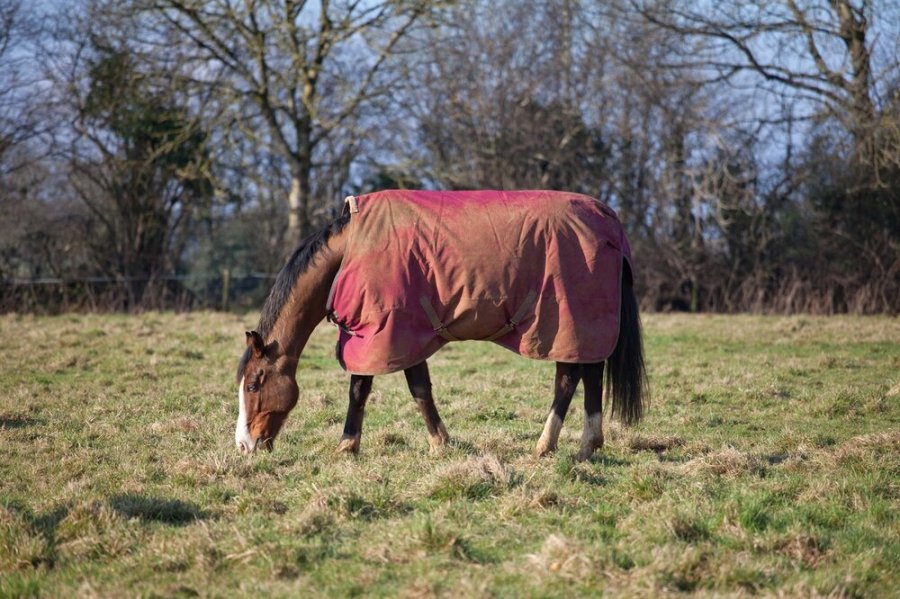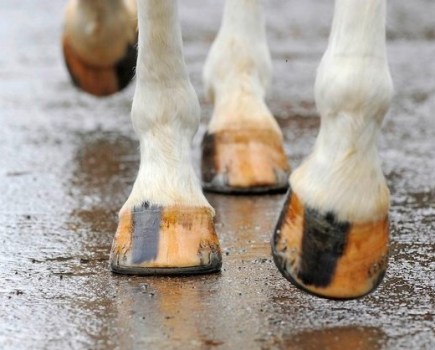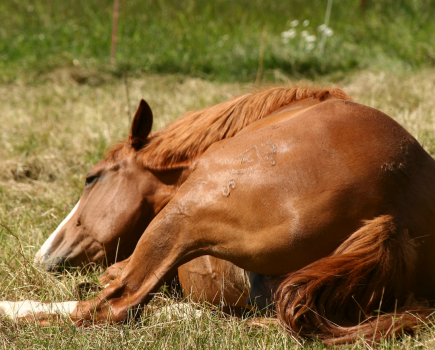In partnership with Allen & Page
Do you struggle to keep the weight on your horse? It can be tricky to judge, but if your horse looks ribby then they may be in need of more calories. Allen & Page nutritionist Jo Palmer shares what you can do.
First of all, you should assess whether your horse is at a healthy weight and body condition. You can do this by monitoring their weight and regularly performing a body conditioning score. You can also seek advice from a professional such as a vet or nutritionist. If you determine that your horse is underweight, it’s time to make some changes.
Horses who struggle to maintain an ideal body condition and lose weight easily will usually benefit from being fed a conditioning feed with a digestible energy (DE) level of at least 11-12MJ/kg.
It’s important to remember that calories and energy are the same thing. It isn’t possible to feed a horse more calories to help them put on weight without giving them more energy.
This can be concerning for some owners whose horses are already naturally forward going and who don’t need any more ‘pop’. However, not all conditioning feeds are the same; it is the ingredients within the feed that are important and which can make all the difference when it comes to giving your horse the right sort of energy.
Feed without fizz
A conditioning feed that is high in fibre and low in starch and sugar will provide slow-release energy that is ideal for promoting weight gain and is much more appropriate for horses who tend to get easily excited. As fibre is fermented in the hindgut relatively slowly, it doesn’t cause the peaks and troughs in blood glucose that some horses react to when fed a high starch/ sugar diet.
A high-calorie conditioning feed that is low in starch and sugar would be ideal for horses who need more condition. This is free from whole cereal grains and molasses, and instead contains ingredients such as molasses-free sugar beet as a source of highly digestible fibre, and linseed as a source of high-quality oil. Both of these provide slow-release energy, which is perfect for promoting weight gain without the fizz.
When fed at the recommended amount for your horse’s size and workload, such feeds will provide them with a fully balanced diet, including quality protein and essential vitamins and minerals.
Fibre providers
As well as a suitable conditioning feed, it’s important to ensure that your horse is eating enough fibre. Horses have a digestive system that requires an almost constant supply of fibre. If insufficient fibre is being consumed, weight loss or failure to gain weight is almost inevitable despite how much conditioning feed is also fed.
The ad-lib hay you provide overnight is ideal, but it would be beneficial to check that your horse is eating enough of it to meet their fibre needs. Weighing how much you in their stable and weighing how much is left in the morning will give you an idea of how much they’re eating.
As a guide, an average 550kg horse should consume a minimum of 6-8kg of hay overnight if they’re out all day on good grazing, or more if out for fewer hours on poor grazing.
Meet the expert: Jo Palmer has a BSc (Hors) in agriculture with animal science and is a member of the Allen & Page nutrition team, helping to guide owners on feeds and feeding.
Check out our subscription offer








